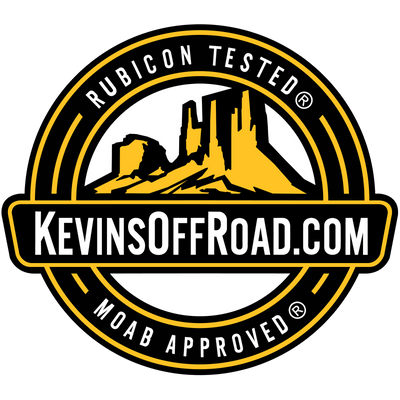Jeep ZJ Grand Cherokee 5.9L Pinging
June 4, 2018
[et_pb_section bb_built="1" admin_label="section"][et_pb_row admin_label="row"][et_pb_column type="4_4"][et_pb_text admin_label="Text" _builder_version="3.0.51" background_layout="light" text_orientation="left" border_style="solid"]
Pinging or Detonation with the Grand Cherokee 5.9 Limited:
Most of this information also applies to the standard 5.2L, and some can be applied to any engine.
By: Scott Mueller scottmueller@compuserve.com
I have a 1998 Jeep GC 5.9 Limited with about 20k and it started pinging under load, especially in higher altitudes. Is there a fix?
A: Yes, there are several possible fixes which I'll outline in this article.
First, some background: The GC 5.9L has a special premium fuel computer calibration stock which has a full 15 degrees *more* spark advance than Chrysler's other calibrations for 5.2L and 5.9L trucks. This mandates a minimum of 91 octane premium fuel. Spark advance is further increased if you run the Mopar Performance replacement computer, which increases the octane requirement to 92 octane minimum.
If you find the pinging only in high altitude environments, it may be due to problems with the gasoline you are using. The gas you find at the local pumps in high altitude areas will have reduced octane ratings because in general the need for higher octane is reduced due to the altitude (lower air pressure = less cylinder pressure = less octane needed).
Unfortunately this can be a problem if you fuel up with this low-octane gas and then drive to a lower altitude, or experience higher temperatures which need a higher octane to prevent detonation. In other words you may have difficulty finding high enough octane fuel depending on where and what brand you purchase. For example, the octane of "premium" fuel sold at higher altitudes will be much less than the 93 octane I can purchase where I live in Chicago. Be sure you are really getting a high enough octane fuel when you fill up.
In researching this problem I found several TSBs (Technical Service Bulletins) from Chrysler related to detonation (knocking or pinging) on Grand Cherokees.
The most important and easiest one to implement relates to spark plug wires and their routing:
TSB NO: 18-48-98
DATE: December 30, 1998
SUMMARY: Ignition System Cross Fire/Secondary Ignition Wire Induction
This bulletin relates to cross-fire in the ignition and coil wires, which can cause detonation and misfires. According to Chrysler, this rerouting procedure should be performed before any other misfire, surge, or spark knock repairs are attempted. The repair procedure involves rerouting the coil wires and/or the plug wires to minimize induction effects. You can see this TSB at:
http://dodgeram.com/technical/tsb98/18_48_98/18_48_98_v8.htm
[/et_pb_text][et_pb_divider admin_label="Divider" _builder_version="3.0.51" divider_style="solid" divider_position="top" hide_on_mobile="on" show_divider="on" color="#a8a8a8" /][et_pb_text admin_label="Text" _builder_version="3.0.51" background_layout="light" text_orientation="left" border_style="solid"]
If after rerouting the plug wires you still have problems, and especially if you've noticed excessive oil consumption, then you should check the following TSB:
TSB NO: 09-05-00
DATE: 02/00
MODEL: All ZJ or ZJ (export) Grand Cherokee w/5.2L or 5.9L gas engines
SUMMARY: Engine knock and engine oil consumption due to intake manifold pan gasket oil leak.
This bulletin relates to an oil leak through the intake manifold which allows oil to be burned, causing excessive carbon deposits which cause detonation. You can see a copy of this TSB at . http://dodgeram.com/technical/TSB00/09-05-00.htmIn the TSB is detailed a procedure to check whether the intake is properly sealed or not.
[/et_pb_text][et_pb_divider admin_label="Divider" _builder_version="3.0.51" divider_style="solid" divider_position="top" hide_on_mobile="on" show_divider="on" color="#a8a8a8" /][et_pb_text admin_label="Text" _builder_version="3.0.51" background_layout="light" text_orientation="left" border_style="solid"]
If your intake manifold seal is good, and the detonation you are noticing has increased gradually over time, it is usually caused by carbon deposits in the combustion chamber. This can happen in any vehicle of course, but the 5.9L is perhaps more sensitive to this due to the increased spark advance it runs, as would be any other high performance engine.
The solution is of course to eliminate the carbon from the combustion chambers. For this I recommend you use what is known as a "Top Engine Cleaner" which is a chemical you either pour or spray into the intake, or in some cases add to the fuel, to clean the combustion chambers and valves of carbon deposits. Chrysler's version of a Top Engine Cleaner is the "Mopar Combustion Chamber Conditioner referred to above. I've even used distilled water for this purpose, although it's not quite as effective.
Some of the better fuel injector cleaner type additives such as Techron are also designed to reduce or eliminate combustion chamber deposits, but they don't work as quickly as the Top Engine Cleaner.
That's what Chrysler refers to as "Mopar Fuel Injector Clean Up" in the above TSB. They also have a product called "Mopar Fuel Injector
Cleaner" which is p/n 4318007 that performs a similar duty.
Here are several sites with instructions on how to use a Top Engine Cleaner to rid an engine of combustion deposits. http://www.gnttype.org/techarea/maintenance/cleaner.html
http://www.shotimes.com/SHO3decarbon.html Although these sites describe procedures for specific automobiles, the procedures would be similar for all fuel injected or carbureted engines.
There is a factory TSB that relates to this as well:
TSB NO: 14-08-97
GROUP: Fuel
DATE: DEC. 21,1997
SUBJECT: Poor Drivability With High DI (Drivability Index) Fuel
You can see this one at:
The pertinant info from this TSB is:
"If a vehicle is experiencing heavy spark knock on gasoline with its designed octane rating, this may be an indication of excessive combustion chamber deposits, or some other problem. Combustion chamber deposits can be removed with Mopar Combustion Chamber Conditioner p/n 04318001."
"if fuel injector or intake valve deposits are suspected ofcontributing to poor performance, occasional use of Mopar Fuel Injector Clean Up p/n 04549613 is a much less expensive way to maintain engine cleanliness than regular use of premium gasoline."
[/et_pb_text][/et_pb_column][/et_pb_row][/et_pb_section]

